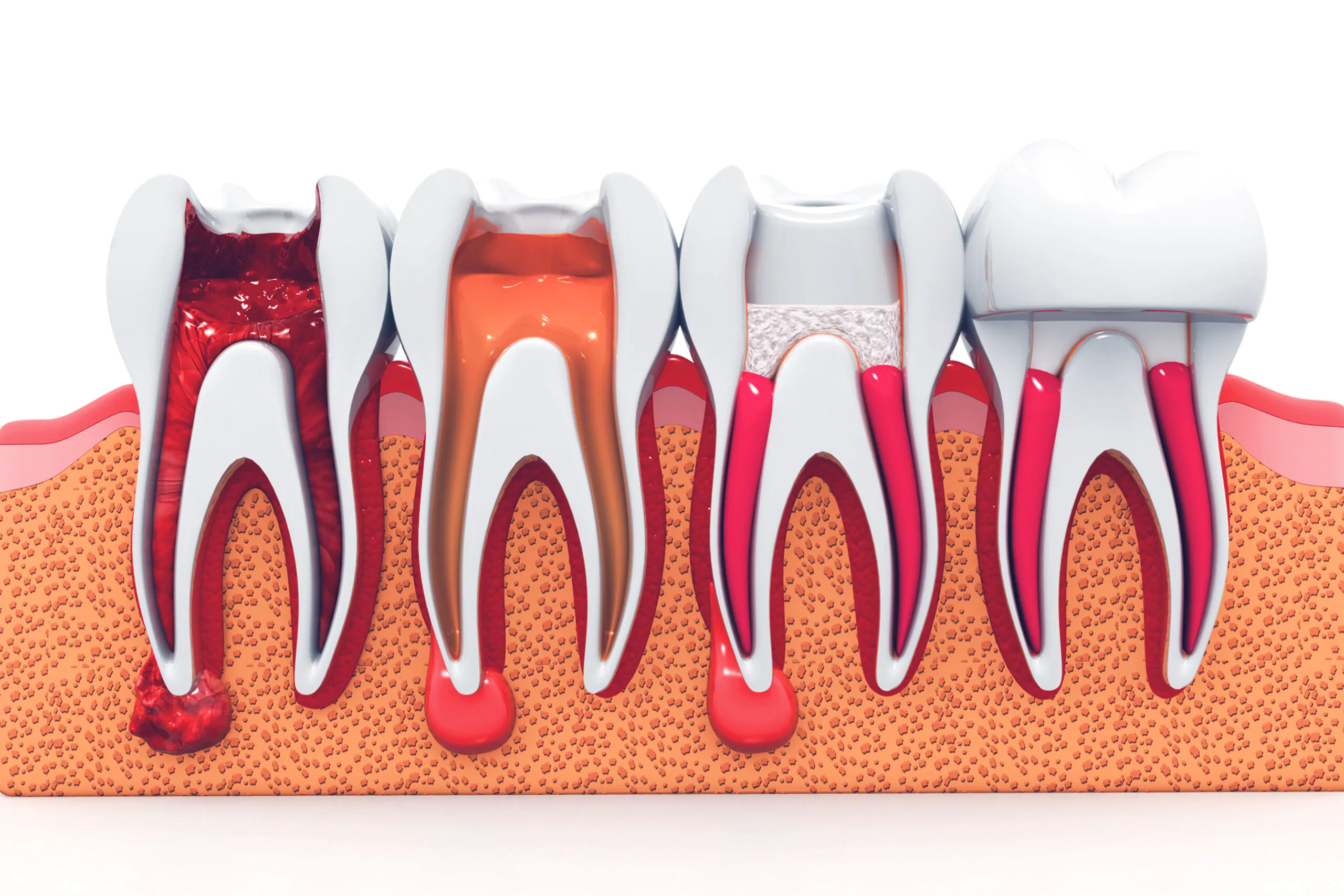Root canal treatment, often referred to simply as a "root canal," is a common dental procedure aimed at saving and restoring teeth that are severely decayed or infected. While the thought of undergoing a root canal may evoke apprehension in many patients, it is a highly effective and routine procedure performed by dental professionals across the United Kingdom. In this comprehensive guide, we will delve into the intricacies of root canal treatment, including its purpose, procedure, cost considerations, recovery process, and the importance of oral hygiene in maintaining optimal dental health.
Understanding Root Canal Treatment:
Root canal treatment is typically recommended when the pulp, the soft tissue at the center of a tooth, becomes infected or inflamed due to deep decay, trauma, or repeated dental procedures. Left untreated, an infected pulp can lead to severe pain, abscess formation, and ultimately, the loss of the affected tooth. Root canal treatment aims to remove the infected pulp, clean and disinfect the root canal space, and seal it to prevent further infection.
The Root Canal Procedure:
The root canal procedure typically involves the following steps:
Diagnostic Evaluation: The dentist conducts a thorough examination, including dental X-rays, to assess the extent of the infection and determine the need for root canal treatment.
Local Anesthesia: Before beginning the procedure, the dentist administers local anesthesia to ensure the patient's comfort throughout the treatment.
Access and Cleaning: Using specialized instruments, the dentist creates an opening in the tooth to access the infected pulp. The infected or damaged pulp is carefully removed, and the root canal space is cleaned and shaped to remove any debris or bacteria.
Disinfection: The root canal space is irrigated with antimicrobial solutions to eliminate any remaining bacteria and reduce the risk of reinfection.
Filling and Sealing: Once the root canal space is thoroughly cleaned and disinfected, it is filled with a biocompatible material called gutta-percha. The opening in the tooth is sealed with a temporary or permanent filling to prevent bacteria from re-entering the root canal.
Restoration: In some cases, a dental crown may be recommended to protect and strengthen the tooth following root canal treatment. The dental crown is custom-made to match the shape, size, and color of the natural tooth, restoring its functionality and appearance.
Cost Considerations:
The cost of root canal treatment in the UK can vary depending on several factors, including the location of the dental practice, the complexity of the procedure, and the need for additional treatments such as dental crowns. On average, the cost of a single-root canal treatment in the UK ranges from £200 to £700 or more, while the cost of a dental crown may range from £300 to £1,000 or higher.
It's important to note that many dental insurance plans in the UK cover a portion of the cost of root canal treatment and dental restorations. Patients are encouraged to check with their insurance provider to determine their coverage and out-of-pocket expenses associated with root canal treatment.
Recovery and Aftercare:
Following root canal treatment, patients may experience some mild discomfort or sensitivity, which can usually be managed with over-the-counter pain medication. It's important to follow your dentist's post-treatment instructions carefully and adhere to the following aftercare guidelines:
Practice Good Oral Hygiene: Maintain a consistent oral hygiene routine by brushing your teeth twice daily and flossing regularly to remove plaque and prevent future decay.
Avoid Chewing on Hard Foods: To prevent damage to the treated tooth, avoid chewing on hard or sticky foods until the permanent restoration, such as a dental crown, is placed.
Attend Follow-Up Appointments: Attend all scheduled follow-up appointments with your dentist to monitor the healing process and ensure the success of the root canal treatment.
Report Any Concerns: If you experience severe pain, swelling, or persistent discomfort after root canal treatment, contact your dentist promptly for evaluation and appropriate treatment.
Maintain Regular Dental Checkups: Schedule routine dental checkups and cleanings to monitor the health of your teeth and gums and address any dental issues before they escalate.
Importance of Oral Hygiene:
Maintaining good oral hygiene practices is essential for preventing dental problems and prolonging the lifespan of root canal-treated teeth. By following these oral hygiene tips, you can help preserve the health and integrity of your teeth and gums:
Brush Properly: Use a soft-bristled toothbrush and fluoride toothpaste to brush your teeth thoroughly for at least two minutes twice daily.
Floss Regularly: Clean between your teeth and along the gumline using dental floss or interdental brushes to remove plaque and food debris.
Limit Sugary and Acidic Foods: Minimize your consumption of sugary and acidic foods and beverages, as they can contribute to tooth decay and erosion.
Stay Hydrated: Drink plenty of water throughout the day to help rinse away food particles and bacteria and maintain saliva production, which helps protect against tooth decay.
Quit Smoking: If you smoke, consider quitting, as tobacco use increases the risk of gum disease, tooth decay, and other oral health problems.
Conclusion:
Root canal treatment is a valuable dental procedure that can save and restore teeth compromised by infection or decay, allowing patients to preserve their natural smiles and maintain optimal oral health. By understanding the purpose, procedure, cost considerations, recovery process, and importance of oral hygiene associated with root canal treatment, patients in the UK can make informed decisions about their dental care and take proactive steps to safeguard their smiles for years to come.
If you're experiencing tooth pain or other symptoms of dental infection, don't delay seeking professional dental care. Consult with a qualified dentist to discuss your treatment options and determine whether root canal treatment is appropriate for your dental needs. With timely intervention and proper care, root canal treatment can provide lasting relief and restoration, allowing you to enjoy a healthy, functional, and beautiful smile for life.


No comments yet